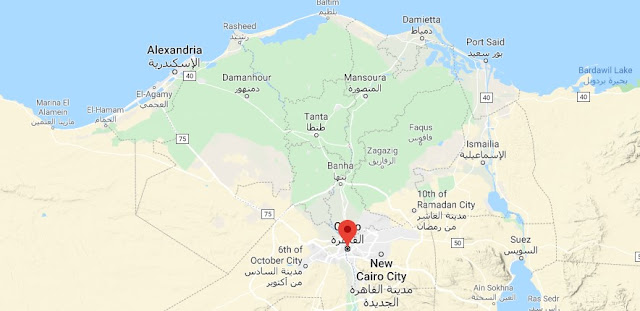Major blast rocks Somalia’s capital Mogadishu, gunfire reported
31 Jan 2021 15:21
At least one large explosion has occurred in Somalia’s capital city Mogadishu. The blast, said to have happened near a popular hotel, was reportedly followed by intense gunfire.
The incident occurred in the capital city on Sunday. Imagery circulating online shows a large plume of white smoke and dust emitting after the blast.
While there has been no official word on the explosion, local media reports have suggested the blast occurred at the popular Hotel Afrik, located to the north of the city’s international airport. The explosion was followed by intense gunfire, Reuters reported.
The first blast was reportedly followed by up to two more powerful explosions. So far, no information on potential casualties or damage has emerged.
“There must be casualties because the militants first started the attack with a suicide car bomb against the wall,” a police spokesman Sadik Ali told Reuters, revealing that multiple people have been evacuated safely from the hotel. “The operation still goes on, casualties will be known later.”
Some media outlets have already pinned the blame for the apparent terrorist attack on Al-Shabaab – a local hard-line Islamist militant group that has ties to Al-Qaeda. The group’s militants have repeatedly attacked various targets across the capital in the past, including some of its hotels frequented by local political and business elite. However, no one has claimed responsibility for the attack so far.
British authorities arrest 5 after fire at center for asylum seekers
By Christen McCurdy
British Secretary of State for the Home Department Priti Patel, shown here in September 2020, said a fire set at a center for asylum seekers was deeply offensive to British taxpayers. Photo by Andy Rain/EPA-EFE
Jan. 30 (UPI) -- British authorities say five men have been arrested after a fire at a center where asylum seekers are being held.
According to Kent Police, one man was held on suspicion of assaulting a security guard and four in connection with a Friday fire at Napier Barracks, a decommissioned military barracks that houses an estimated 300 to 400 people seeking asylum in Britain.
No injuries were reported.
Officials said the barracks remained "calm" Saturday, and police said they are working with other authorities to "establish the full circumstances and identify any individuals involved."
Britain's Home Office, which oversees immigration and security in the country, said there had been a disturbance at the site after asylum seekers objected to not being moved from the site after a COVID-19 outbreak.
The outbreak infected at least 120 people, and the charity Care4Calais wrote on Facebook Friday that many residents are still "very sick" with the virus."
"They appear to have been completely abandoned by the authorities," without food, drink or heating, Care4Calais wrote.
The charity has called for the closure of the facility, and at least one community leader in Folkestone, the southeast England port community where the barracks is located, has asked that residents be moved to hotels.
"One building has been virtually destroyed, but there is no intention to remove the people from the site," said Folkestone council leader David Monk.
He also said he never believed it was a good idea to put a large group of young men in one place, saying, "It is not a surprise to me that tensions have eventually overridden common sense."
British Secretary of State for the Home Department Priti Patel wrote on Twitter Friday that the fire is "deeply offensive to the taxpayers of this country who are providing this accommodation while asylum claims are being processed."
"This site has previously accommodated our brave soldiers and army personnel -- it is an insult to say that it is not good enough for these individuals," Patel wrote. "I am fixing our broken asylum system, and will be bringing forward legislation this year to deliver on that commitment."
Patel doesn't sound the least bit empathetic toward the migrants. Considering her grandparents emigrated to Uganda, and her parents emigrated to Britain, that's a little surprising.
Denmark sermons law could stifle free worship, warns C of E bishop
Robert Innes says proposed translation law could have affect
on religious freedoms across Europe
The Anglican community in Denmark centres around the early 19th-century Church of St Albans in Copenhagen’s Churchill Park. Photograph: Reuters Staff/Reuters
Daniel Boffey in Brussels
Sun 31 Jan 2021 13.07 GMT
The liberties of the centuries-old community of Anglicans in Denmark are being threatened by a draft law requiring all sermons to be translated and submitted to the state, the Church of England’s bishop in Europe has said.
Robert Innes, whose diocese stretches across mainland Europe, has written to the Danish prime minister, Mette Frederiksen, expressing his alarm at what he describes as an “overly restrictive” bind on freedom of expression.
The “several-hundred strong” Anglican community in Denmark centres around the early 19th-century Church of St Albans in Copenhagen’s Churchill Park, designed by Arthur Blomfield in the style of an English parish church.
Denmark’s parliament is expected to debate the legislation, known as the law on sermons in languages other than Danish, in the coming days, after the government said it was necessary to curb the growth of Islamist extremism.
Innes told the Guardian he feared the law, if backed in the Danish parliament, the Folketing, would be replicated elsewhere in Europe at a time when religious minorities were generally finding their freedoms being encroached upon.
“I am sure it comes from a genuine concern about the security of the estate and the monitoring of all religious minorities who might be perceived as a security risk,” Innes said. “I share the ambition of the Danish government to ensure safety and security and the desire that all religious organisations in Denmark conduct their act peacefully but to require translation of sermons into the national language goes too far. It goes in a concerning anti-liberal direction.
Oh no! Not anti-liberal!!
The government has said the aim of the law is to “enlarge the transparency of religious events and sermons in Denmark, when these are given in a language other than Danish”.
There is a growing level of concern at a perceived rise of Islamist extremism among the 270,000 Muslims who live in Denmark. Most of the sermons preached in mosques are in Arabic. But Innes said the Danish government should be working with religious organisations rather than resorting to a “negative and legalistic” attack on the rights of minority groups.
The bishop said it was unclear whether the law would require translations to be sent to the government before or after being given, but that in either case it was an impractical and illegitimate constraint.
He said: “Preachers don’t always write full text of their sermons, they might write notes. They might preach extempore as the archbishop of Canterbury sometimes does and there are questions of idiom and nuance which requires a high level of skill in translation of course. It is a high bar. It is a skilled art and it is an expensive skill as well.”
A range of European churches have also voiced their concerns, including the Evangelical Lutheran church in Denmark, the Lutheran World Federation, the Roman Catholic Commission of the Bishops’ Conferences of the European Union, and the Conference of European Churches.
Innes said there was a worrying trend towards impinging on minority groups across Europe. “There is a wide sense of concern about this. I am genuinely concerned at what I detect to be a growth of an anti-liberal government legislation and freedom of religion threats in Europe as a whole.
“This is not an isolated incident. I do think that we need to be alert to the encroachment on our freedom to practice our religions. Little by little, minority groups are being treated with increasing suspicion.
Hmmmm. Gosh, I wonder why?
“For example, in Switzerland our clergy have been informed that they can’t work part time, they can only work full time, because there is a suspicion at what they might be doing in the other half of their time. In France, minority religious groups are required to have their accounts subject to a particularly invasive investigation and to re-register as religious associations every five years.
“I think overall there is a suspicion of people using languages that are not the native languages of the country concerned and that is in contravention of the article 9 of the convention of freedom of thought, comment and religion, which does guarantee for people to manifest their own religion and belief in worship teaching practice and observance, which must include the freedom to worship in your maternal tongue.”
'To worship in your maternal tongue'! To inspire jihad is something else altogether. I am quite sure that the Danish gov't is not worried about the Church of England being insurrectionist. Islam is something else. Far-right extremists are also something else, although fairly few and far between.
The gov't cannot force only Islam to subject their sermons to review, so must include all churches. However, I don't think the system will work as written sermons may differ substantially from spoken sermons. Do you think a Jihadi cleric is going to give you an honest interpretation of his call to arms? Don't be rediculous!
Better for churches, synagogues, mosques, and temples to provide a video of every sermon, sermonette, spoken in their church. The gov't can do the translating if the paid reviewers feel there is something wrong in the video.








































